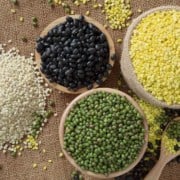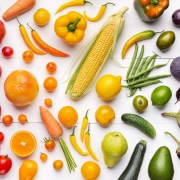Video: Best Sources Of Plant Proteins And Why You Need To Eat Them
People have a good relationship with meat. This is the reason why animal protein consumption has risen immensely compared to 50 years ago. But because animal protein has been linked to various diseases, there is an increase in the number of consumers who opt to consume plant-based proteins.
The Benefits Of Consuming Plant Proteins
In research conducted at Harvard University, people who consume plant proteins have a better metabolism than those who consume just animal proteins. This led people to have a lowered risk of developing obesity. In fact, increasing your consumption of plant proteins is associated with as low as 10% risk of premature death.
Unlike animal proteins, plant proteins do not come with added nitrites and nitrates. This is particularly the case for processed meat. Opting for organic plant proteins that are chemical-free, helps reduce inflammation in the body.
Another reason why it is crucial to consume more plant protein is that they contain a lot of fiber. Plant sources of protein are namely chickpeas, legume, lentils, grains, and beans. These contain a lot of fiber that can help keep the digestive system functioning optimally. Shifting towards plant protein is good because studies have noted that an average Western diet is deficient in natural fiber. Fiber is also necessary because it serves as fuel for the good bacteria living in your gut.
But aside from fiber, plant proteins also contain high amounts of vitamins and minerals like folate, iron, zinc, magnesium, phosphorous, and potassium. They are also cholesterol-free making them good for the heart.
Perhaps the biggest advantage of eating plant protein is that it is very affordable. If you buy animal protein, it typically costs two to three times as much as plant sources of proteins. Lastly, it is also good for the environment as the carbon footprint in maki a plant-based protein is less compared to growing animal meat.
How To Eat Plant-Based Proteins And The Best Sources
Eating plant proteins can be fun. Unfortunately, some people do not eat them because they do not know how to prepare them. One of the most effective way to prepare plant protein is to sprout them especially if you have beans. Sprouted legumes have benefits as they increase the absorption of nutrients in the intestines. Another way of preparing plant protein is to take them in powder form. However, make sure that you avoid powdered plant proteins that contain additives and artificial sweeteners.
If you are planning on introducing more plant-based proteins to your diet, then there are good sources of plant proteins that you can choose from. You can get your daily protein needs by eating at least a cup of black beans, chickpeas, chia seeds, sunflower seeds, almonds, edamame, lentils, pumpkin seeds, lima beans, green peas, spinach, brown rice, kale, quinoa, and Brussels sprouts. Other sources of plant proteins can come from all types of leafy green vegetables, nuts, and seeds.
Consuming plant-based protein has a lot of benefits not only to your health but also to the environment. Make sure that you incorporate them in your diet as often as you can.
Inspired by www.huffingtonpost.com





